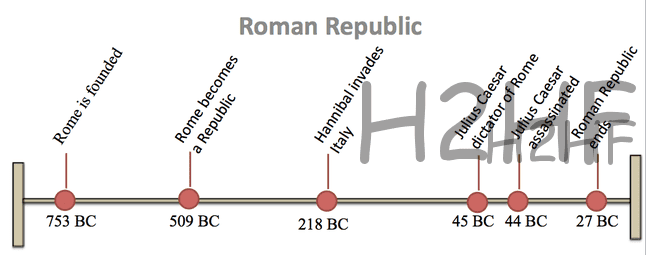Events that wasted Roman Empire & lessons for Pakistan
The Roman Empire timeline was from 753AD – 27 BC and then from 64 – 1400 AD. The first era was marked by rule of law, equal distribution of power and the military-focused on professional duties.
.png)
This lead to Rome reaching the zenith of its power and annexing the most land at any time — and having the institutional strength to sustain it. The second era was more about ambitious leaders jostling for power — and a steady downward spiral. The top 5 reasons why Rome went downhill are as follows:-
.jpg)
Tiberius Graccus’s (166-133 BC) attempted to undermine the Senate and rule of law with populist agitation in 143 BC. Tiberius tried to introduce a limit to land holding for the elite in Rome. His stated purpose was to redistribute land to the peasants. Instead of working with the senate, he tried to launch a civilian coup by rousing populist sentiment and gaining more power for himself — an anathema for Rome’s core principles. It was his act of undermining his senate that lead to the same senate bludgeoned him to death. The plague of unconstitutional moves had already been introduced in Rome.
.jpg) Privatization of the Roman army took place when generals were allowed to pay their own troops through spoils of war and landholdings. Then the Marius (157-86 BC) reform allowed soldiers to be recruited from the land-less peasants. Furthermore, the roman formations were no more told to return to their civilian jobs after a certain expedition was over. This created several legions of politically inclined formations — loyal to their commander — instead of Rome. All these three reasons combined to turn this army into a political entity — thereby undermining the rule of law.
Privatization of the Roman army took place when generals were allowed to pay their own troops through spoils of war and landholdings. Then the Marius (157-86 BC) reform allowed soldiers to be recruited from the land-less peasants. Furthermore, the roman formations were no more told to return to their civilian jobs after a certain expedition was over. This created several legions of politically inclined formations — loyal to their commander — instead of Rome. All these three reasons combined to turn this army into a political entity — thereby undermining the rule of law.
Julius Cesar (100BC – 44BC) as a victorious General returning from his conquest, crossed the Rubicon line and lead his troops straight into Rome – to grab power. This was to kick start the downwards slide of Rome where military generals and presidential guards repeatedly took part in palace intrigue, with the aim to acquire political power. The empire as a consequence weakened drastically in civil wars.
Constantine (306-337AD) tried to assume complete control of Rome by using Christianity 300 years after Jesus Christ’s death, to galvanize his troops and get legitimacy. He mutilated the non-religious foundation of the empire and ended up partitioning Rome into two. The same religion eventually made Romans complacent, indifferent, and inclined to accept dictators — leading them further down the path of decline.
At the time of the ransacking of Carthage in 146 BC, Rome was at its peak in governance and military prowess. In the absence of genuine enemies, the ambitious, unsavory and sociopathic elements in the Roman society, which included rogue military commanders, started looking inwards.
.jpg)
So, the lesson for Pakistan ( as things are looking up for Pakistan) is that no matter how messy democracy looks from far off, it’s the rule of law, the balance of power, respect of the constitution, people-oriented institutions, and a professional military that would ensure the long term stability of a nation.
You dig people?

informative
Good article: IK
Very very informative and interesting.
Definitely rule of law , respect of institutions and democracy in that order are the foundation of a nation